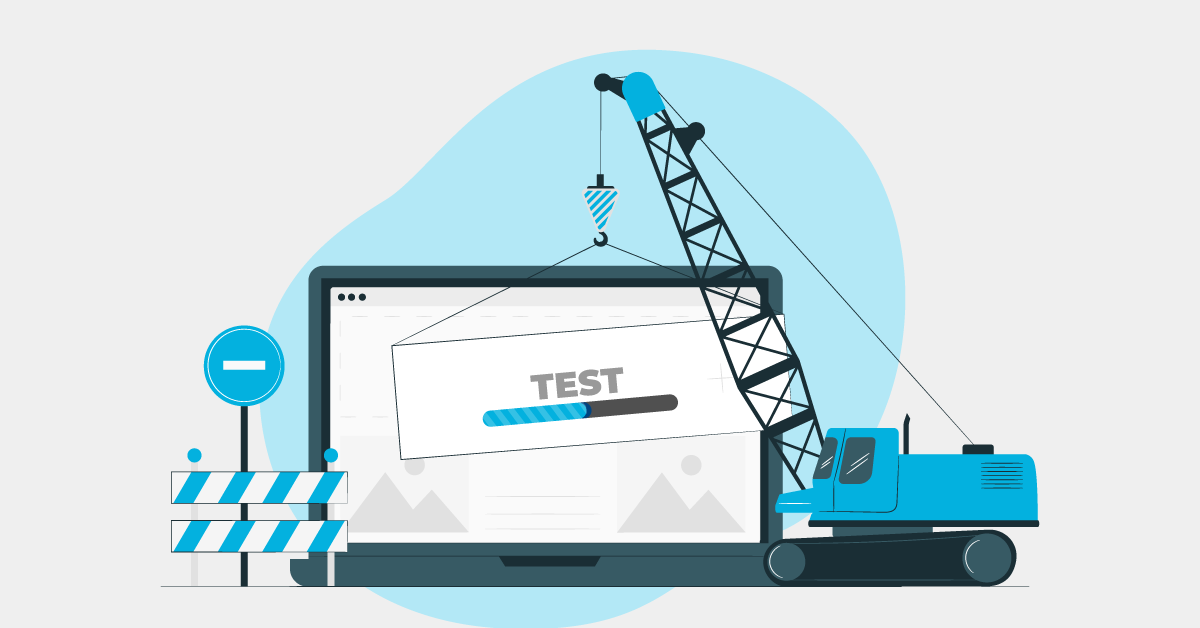The spectrum of tech startups is wider than ever in today’s ever-changing, globalized IT industry. But while tech companies come in all shapes and sizes, they still have one thing in common – they all need exceptional testers.
Software testing has steadily grown into a global $40-billion market. With projected annual growth topping 9%, there has never been a better time to join the ranks of Software Quality Assurance specialists. The only problem is that the IT sector is constantly evolving. In order to stay relevant, testers must regularly update their skill sets based on both short-term and long-term industry trends.
Unfortunately, there are just as many tester skills as there are startup niches. So figuring out which specialties will be essential this year is no easy task. Many skills have proven to be in high demand, some withstood the test of time, but only a few stand out as vital.
1. Understanding of STLC & SDLC
The SDLC (Software Development Life Cycle) is a roadmap for the entire software deployment process. Some organizations create strict, detailed SDLCs and follow them meticulously. Meanwhile, others take a more Agile route. Either way, testers should familiarize themselves with all seven steps of a proper dev life cycle.
- Planning
- Requirement Analysis
- System Design
- Software Build
- Testing
- Software Deployment
- System Maintenance
Testing is so essential to the SDLC that it is broken down into a similar roadmap, called the STLC (Software Testing Life Cycle). As you can probably guess, testers are expected to have an even more comprehensive understanding of the five main STLC stages.
- Plan Development
- Test Case Design
- Test Environment Setup
- Execution
- Test Cycle Closure
2. The Agile Approach to Testing
The Agile method is proof that some trends are breakthroughs in disguise. Agile methodologies have been shown to reduce TTM (time to market) when applied to the software development process as a whole. In the past few years, as more companies discovered the benefits of Agile, the method has been implemented for practically every stage of the SDLC. And testing has turned out to be among the best use cases.
With Agile, testing is done at every stage of the SDLC. As a result, developers receive feedback early on, and testers have more time to create and implement various test cases. This leads businesses to save both time and money.
3. Programming Proficiency
As a QA specialist, you are expected to integrate yourself into the software development team. That means you’ll work closely with developers, which can become problematic if you aren’t proficient in at least one of the common programming languages.
The good news is that you don’t need to become a master coder to be an expert tester. However, learning the terminology and lingo helps improve communication. And better communication always boosts the effectiveness of the entire development team. On top of that, there’s a wide variety of testing methods that require basic coding proficiency, namely:
- Component Testing
- Unit Testing
- Certain Automation Testing Techniques
- API Testing
- Complex Integration Testing
4. Compliance With Documentation Protocols
Some of the most useful insights you offer as a QA tester can’t be translated into any programming language. Everything from the specific procedures you used to the general thought process that made you choose them can prove to be indispensable. As such, it is essential to have impeccable note-taking and documentation skills.
Every business has different expectations, but most provide their testers with detailed protocols for documenting their work. Some go a step further by implementing standardized templates. But even if you weren’t given any specific instructions, you are expected to deliver in-depth reports detailing your work.
5. Logic & Analytical Tester Skills
The best software testers must demonstrate keen analytical abilities. Not only is it essential for breaking down system processes into manageable test cases, but also for providing succinct, easy-to-understand feedback to the developers.
Since the role of QA testers is to identify issues and offer the best potential solutions, you must learn to think outside the box. It may seem contradictory, but the best way to design effective test cases is to use a creative approach to solve technical problems. And that’s only possible with highly developed logical reasoning skills.
6. Familiarity With Automation Tools
Nowadays, most system tests require some level of automation. In contrast to manual testing – a meticulous, step-by-step process performed by QA specialists – the automated methods allow you to use scripts instead of individuals. Automated tests can be run repeatedly without supervision, saving both time and money.
Thanks to the test automation tools available today, you no longer need to write the scripts yourself. Take MuukTest as an example.
7. Systemic Bug Reporting
Even the simplest type of software can have a wide variety of different defects. Great QA testers use Bug Report templates to prepare. These templates are helpful because they can be organized, analyzed, and sorted. There is no one-size-fits-all template, but the best Defect Reports always include the below elements.
- Designated bug ID
- Brief defect note in layman’s terms
- The version number of the tested code
- Steps that led to the discovery of the bug
- Priority level indicator
- The team assigned to fix the bug
- Current status of the defect
8. Willingness to Learn (Fast)
As we’ve already mentioned, many projects require testers with at least some niche knowledge. Of course, testers are not expected to have that knowledge on their first day, but they must be able to quickly acquire it, regardless of the subject matter. That means you must learn to research new concepts and adapt your test processes to the topic at hand.
At first, “willingness to learn” might seem like a tired, generic phrase found on any mediocre resume. Heck, in most professions, it is. But when it comes to software testing, it’s a truly useful and irreplaceable skill.
9. Business Flow & Development Awareness
Although a software tester’s main focus should be on the technical aspects, it is just as important to develop an understanding of the underlying business processes. Companies are no longer interested in classifying their teams. Instead, industry leaders have learned that testers with a clear business organization perspective are more effective at optimizing the underlying systems.
10. Interpersonal/Communication Skills
There’s a good reason why you see communication skills for software testers listed as a requirement for high-level positions. Software development is a team effort in every sense of the word. And a lack of communication can doom even the most talented group of IT experts. Luckily, this is a relatively easy skill to master. To start, all you have to do is follow a few simple rules.
- Keep your vocabulary updated by reading as much as possible.
- Speak at a steady pace (not too fast or too slowly).
- Make it personalized by maintaining eye contact when speaking in person and addressing team members by their names in every email.
- Listen carefully and ask at least one follow-up question before changing the subject.
- Be clear – speak concisely and write succinctly.
In Conclusion
As the IT industry matures, the software testing field is becoming more and more competitive. But with the right tools, a bit of research, and some flexibility, you can develop the skills necessary to be a part of the most intriguing projects of 2023. Just remember, there’s a whole lot more to being a QA tester than creating plans, setting up test environments, and reporting bugs.
Frequently Asked Questions
-
Is there a demand for QA testers?
Thanks to a rapidly growing and evolving need for software by businesses, the demand for QA professionals and testers is projected to grow 25 percent between 2021 and 2031.
-
Is software testing a good career?
With technology advancing and becoming more complex, software testers are in high demand. Not only does software testing provide a reliable and steady income, but it also offers excellent growth potential with ever-changing technologies and highly rewarding roles.
-
Which skills are in demand for software testing?
Programming, frontend and backend, database and SQL, as well as knowledge of source control systems and software testing tools, writing automated tests. Aside from these very specific skills, communication abilities are also key.











